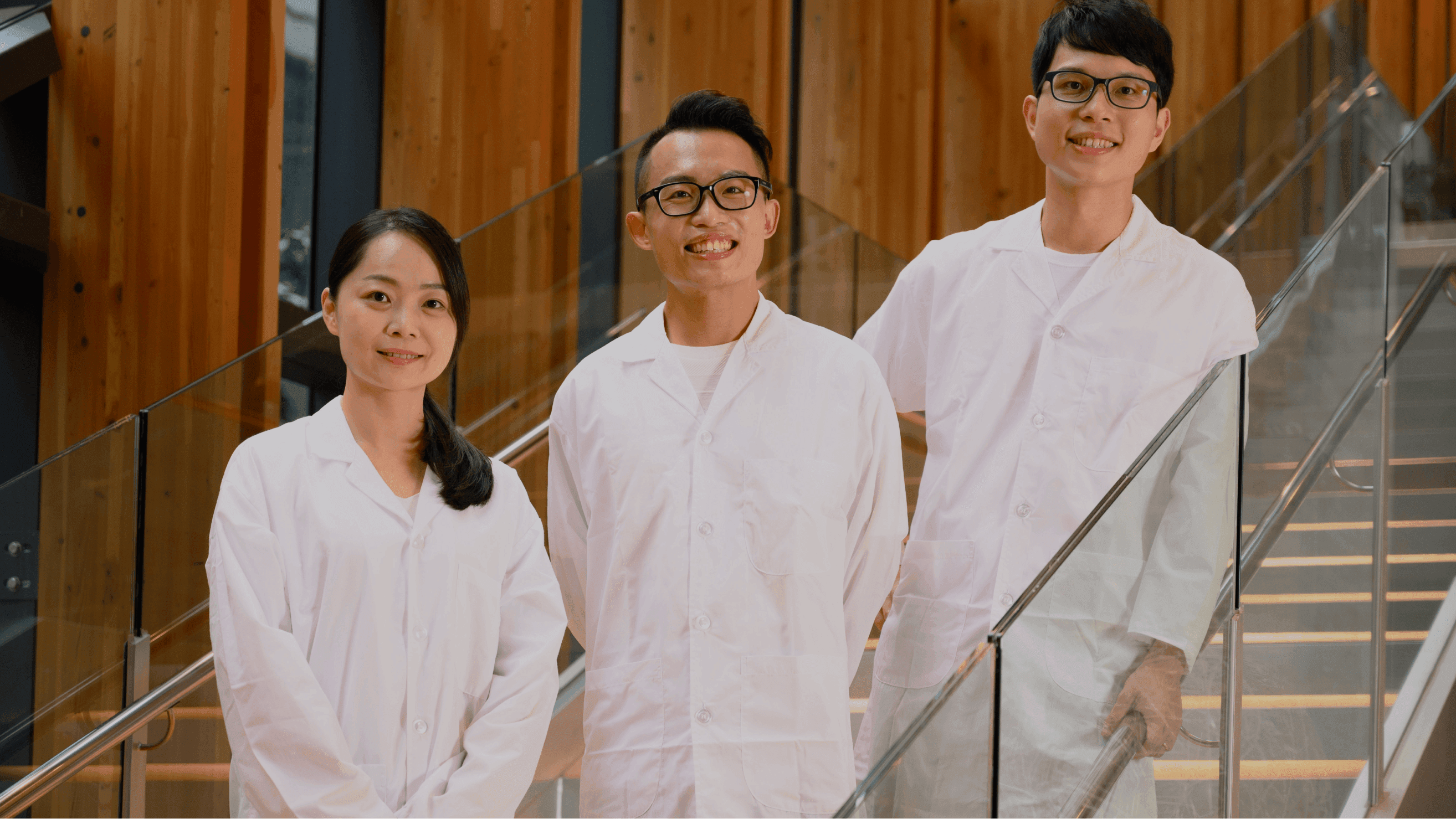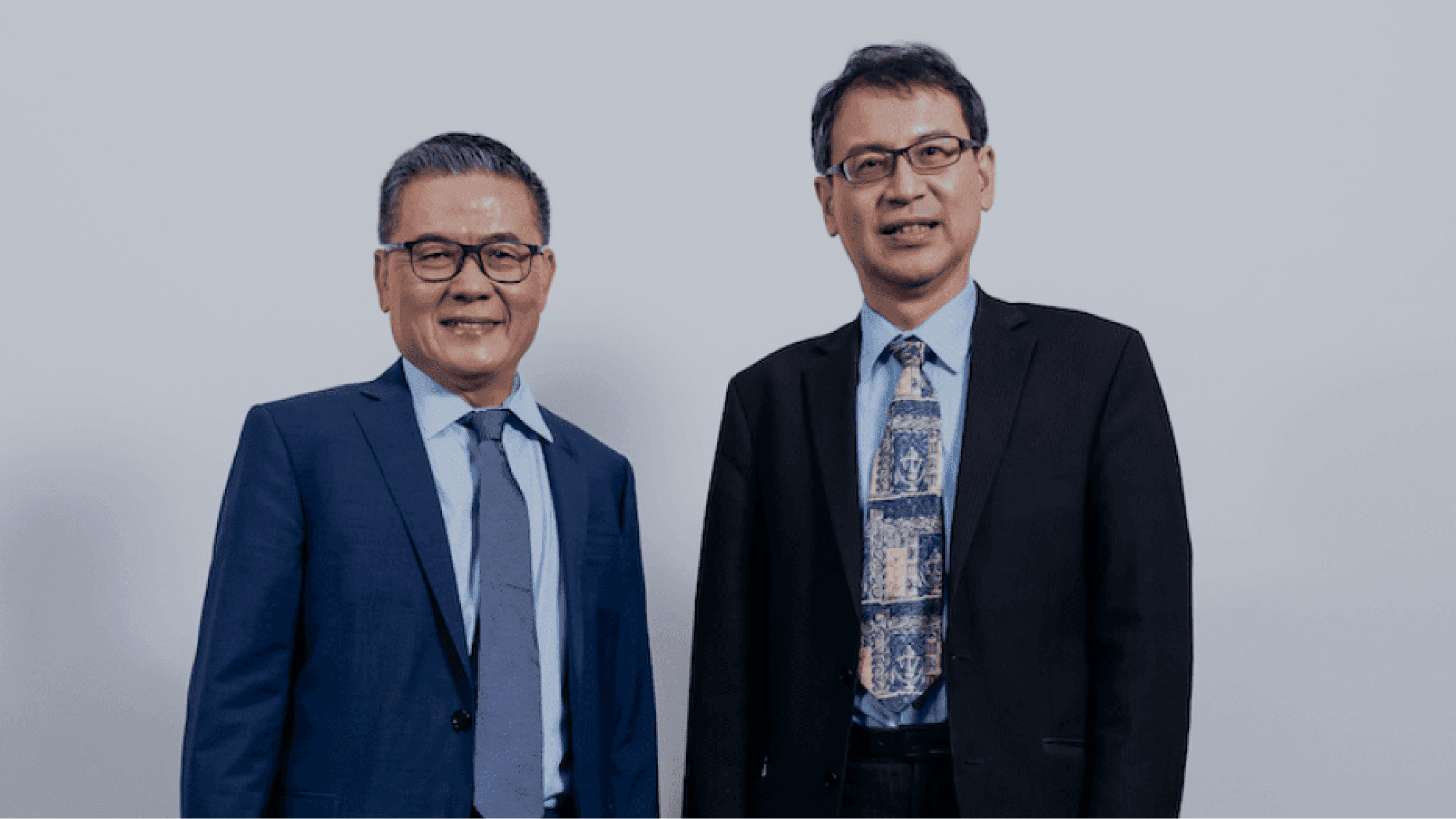Innovation
Innovation and creativity are at the heart of our Research and Development philosophy
Vincent Liu, CEO
LCY - Innovation Engine R&D Center to incubate new talents, new ideas, and new businesses
LCY continues to propose scientific innovations that dazzle the outside world. Behind it is a group of R&D teams composed of top international talents.
LCY prioritizes innovation. We have stepped up investment in equipment and facilities to transform the Nanzi Research and Development Center into a world-class innovation hub. At the same time, we are deeply committed to cultivating Research and Development talents. Our core competitiveness is centered on our circular materials innovation hub, and we consistently strive to provide sustainable solutions.
Dialogue: Vincent Liu, CEO x Lin Tze-luen, Deputy Executive Director LCY enhancing its competitiveness amid the wave of carbon neutrality
As countries declare their carbon neutrality goals, it has become an unstoppable global trend. In light of this, Lin Tze-luen, Deputy Executive Director of the Office of Energy and Carbon Reduction at Executive Yuen, and Vincent Liu, CEO of LCY Chemical Corp., share their insights on how Taiwan can align with this global momentum and transition to a circular economy.
Achieving resource sustainability LCY and Renato Lab implement circular economic circle and benefit the earth
In the past 50 years of global economic development, people's demand for materials has tripled, but resources are limited and the cost of obtaining raw materials is getting higher and higher. At the same time, the energy consumed in the manufacturing process also produces additional carbon dioxide, which contributes to climate change. intensified. LCY, a major chemical materials manufacturer in Taiwan, and Renato Lab, an environmentally friendly materials R&D and application company, have implemented the power of circular economy from the upstream materials end and end-use end, trying to mitigate the impact of resource shortages and climate change.
In response to carbon neutrality, LCY plays an important role in EIPA dual cycle.
High-end semiconductor manufacturing processes are becoming more and more complex and sophisticated. The requirements for wafer cleaning are increasing. The use of pure water and chemical solvents is increasing. The amount of waste produced is also growing. Waste management has also become an important issue. Therefore, the use of pure water and chemical solvents in the manufacturing process has also become an important issue. Every link must consider how to use resources sustainably to reduce the impact on the environment.
Electronic grade isopropyl alcohol (EIPA) dual cycle is the only technology in the world that can convert semiconductor process cleaning waste liquid into electronic grade isopropyl alcohol. Its first cycle is to recycle wafer cleaning EIPA waste after use by the client. The liquid is separated and filtered in LCY Plant, recycled and made into the same grade of isopropyl alcohol, and returned to the customer's factory again.
The second cycle is to pass the water separated from the semiconductor manufacturing waste liquid through LCY's MBR membrane bioreactor, using the large number of pores with a diameter of 0.05 microns on the surface of the hollow fiber membrane to filter impurities and pollution in the wastewater, and remove the impurities and pollution in the wastewater. Water resources are recycled and used as cooling water for the manufacturing process. The recycled water is also used in biological treatment pools in forestry areas and can even be used for fish farming.
"LCY's EIPA dual circulation system is an indicator case of cooperation between upstream and downstream industries to achieve zero waste of water and chemicals, create a closed cycle of resources, and solve the waste and water shortage issues faced by the semiconductor industry."
LCYtech Green Copper Foil joins hands with technology industry partners to find solutions for the earth.
Materials technology continues to advance and improve human convenience. All cars, mobile phones, computers and other items that are frequently used in daily life are made by the materials industry. However, the earth's resources are limited and the cost of obtaining raw materials is getting higher and higher. The recycling and reuse technology of high-tech materials is also facing great challenges. "Reducing the environmental impact of products as much as possible at all stages of the product life cycle, including waste management, disposal, recycling and reuse."
As an important supplier of green electronic materials, LCYtech is playing a key role in the circular economy through rigorous product management methods.
The copper foil produced by LCYtech is moving towards resource sustainability. First of all, LCYtech uses 100% copper wires from recycled waste cables as raw materials, not from mines, and has zero impact on the environment; second, in product design and manufacturing processes, it uses ingredients that are less harmful to the environment and more environmentally friendly. bio-based chemicals to remove impurities for recycled copper. Third, energy and water consumption have been reduced by approximately 7% and 14% respectively in the past 12 months, and waste sludge volume has been reduced by more than 33%.
Mitigating climate change is a topic that all mankind must face, and the high-tech industry is the first to bear the brunt and has the social responsibility to shoulder this important responsibility. On the road to carbon neutrality, LCY, as an important partner of the high-tech industry, implements circular economy thinking and effectively reduces carbon emissions and waste of limited resources. In the future, it will also join hands with more industrial value chains to find solutions to climate change. solution


